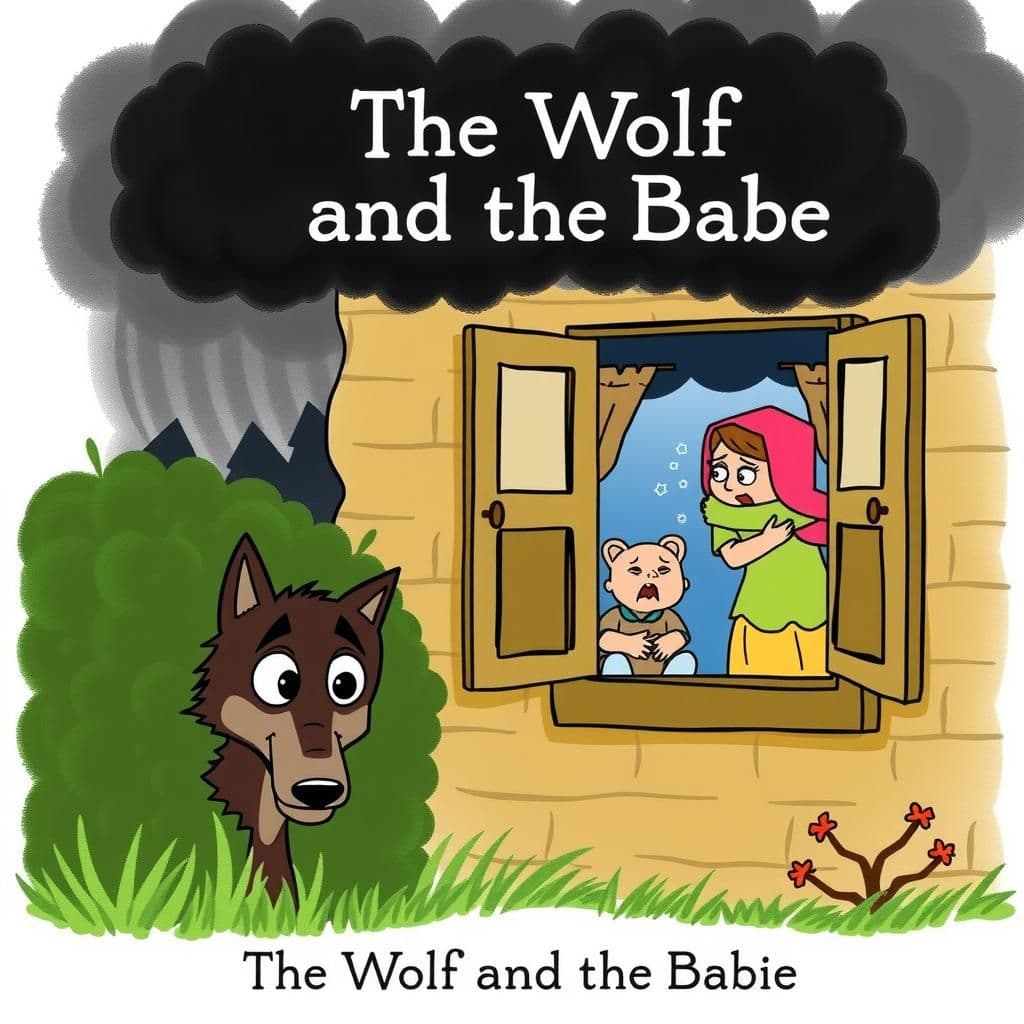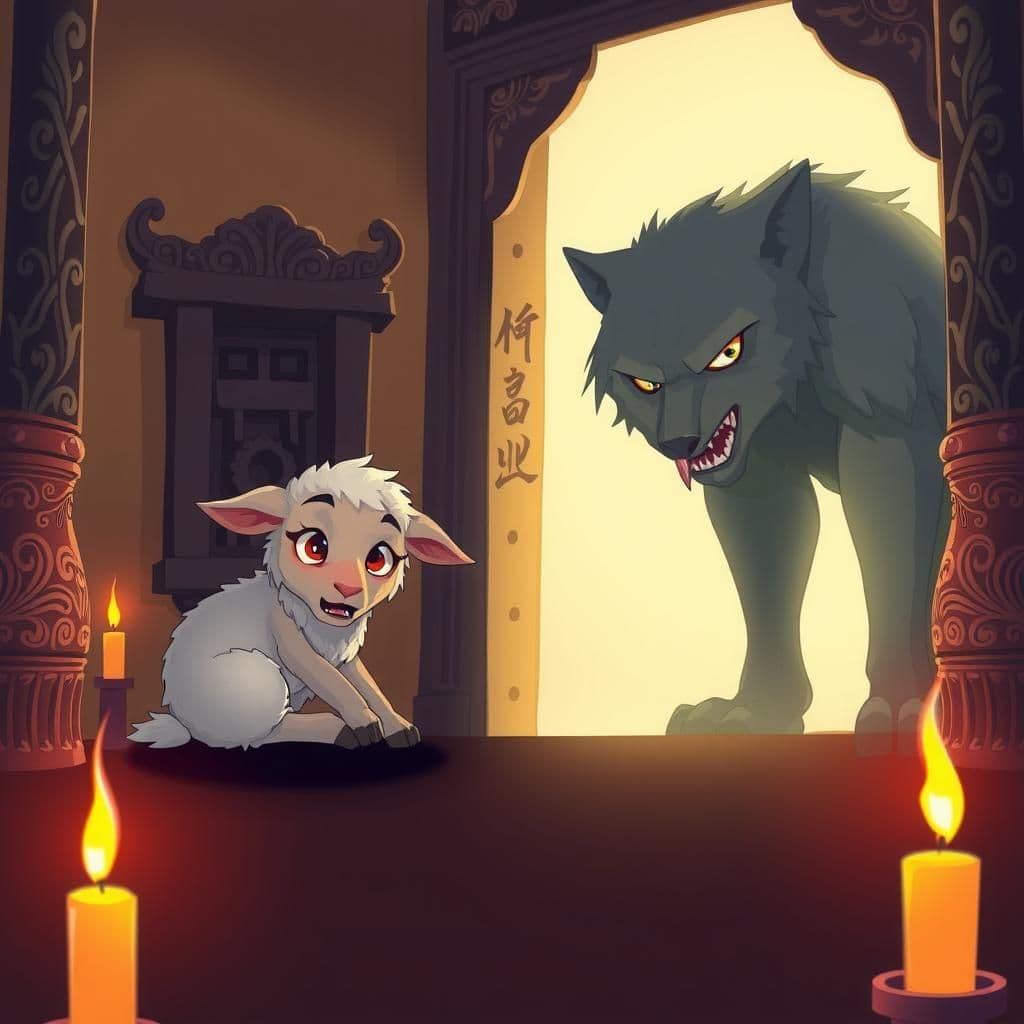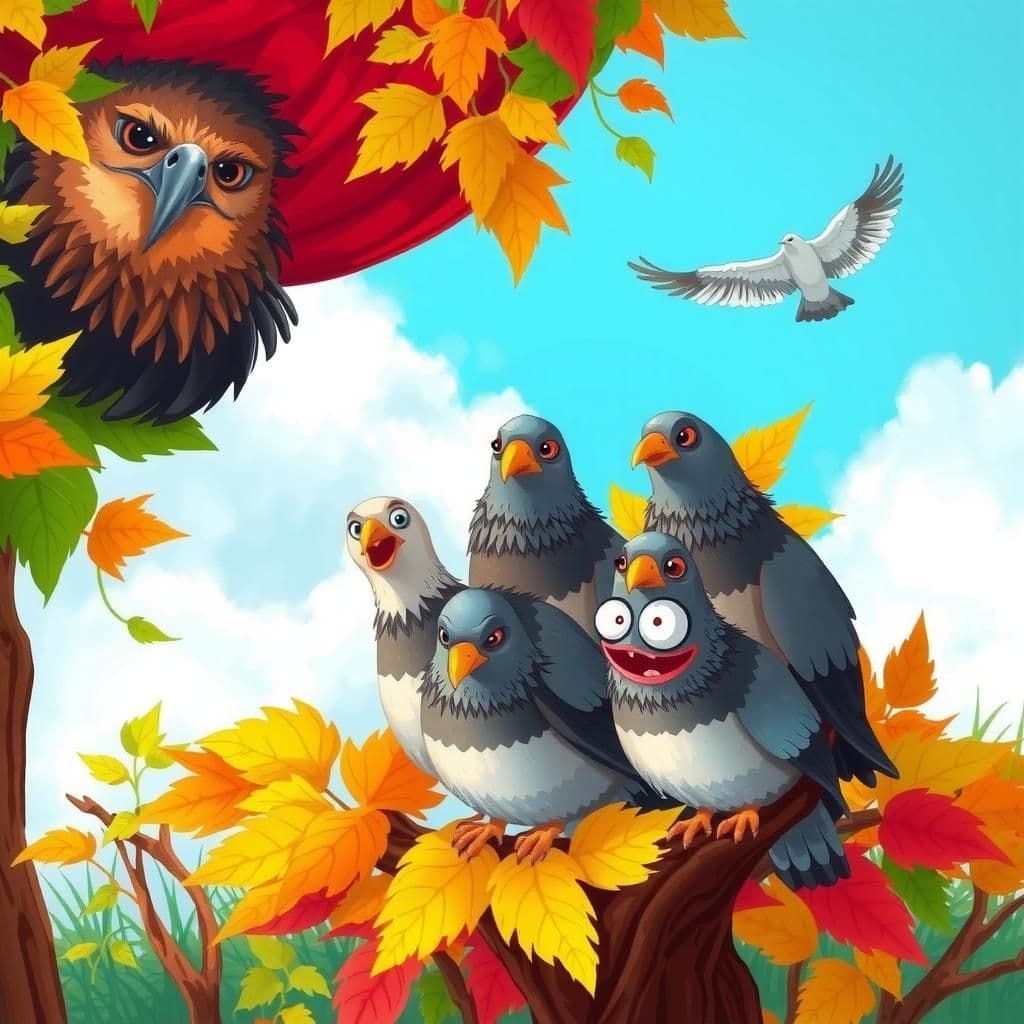The Wolf and the Babe
In the short story "The Wolf and the Babe," a famishing wolf eavesdrops on a mother threatening to toss her child out the window to silence him, hoping for a chance to feast. However, as the day passes, it is the father who returns home and discards both the mother and child instead. This engaging moral tale highlights the unexpected twists of fate and the simple lessons from stories about the consequences of neglect and cruelty.

Reveal Moral
"The moral of the story is that threats made in anger can have unintended consequences, leading to harm for both the speaker and the subject of their ire."
You May Also Like

The Lamb and the Wolf
In the simple short story "The Lamb and the Wolf," a Wolf chases a Lamb that finds refuge in a Temple. When the Wolf warns the Lamb that he would be sacrificed by the Priest, the Lamb wisely replies that being sacrificed is preferable to being eaten by the Wolf. This quick moral story highlights the theme of choosing a less harmful fate over a more dangerous one, making it a meaningful story with moral lessons suitable for class 7.

The Hawk the Kite and the Pigeons
In the best moral story "The Hawk the Kite and the Pigeons," terrified pigeons seek help from the Hawk to protect them from the Kite, only to discover that the Hawk poses an even greater threat, causing more destruction than the Kite ever did. This animal story with moral teaches children a valuable life lesson: be cautious of seeking remedies that may ultimately be worse than the original problem. Through this folklore and moral story, readers learn the importance of carefully considering the consequences of their choices.

The Thistles upon the Grave
In the very short moral story "The Thistles upon the Grave," a Mind Reader wagers that he can be buried alive for six months, using thistles to secure his grave against disturbances. However, after only three months, he emerges to eat the thistles, losing the bet and illustrating the folly of underestimating basic needs. This simple short story serves as a reminder that even the most clever plans can be undone by simple desires, making it a notable example among famous moral stories for class 7.